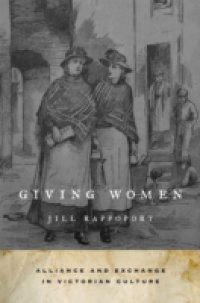Altruism and self-assertiveness went hand in hand for Victorian women. During a period when most lacked property rights and professional opportunities, gift transactions allowed them to enter into economic negotiations of power as volatile and potentially profitable as those within the market systems that so frequently excluded or exploited them. They made presents of holiday books and homemade jams, transformed inheritances into intimate or aggressive bequests, and, in both prose and practice, offered up their own bodies in sacrifice. Far more than selfless acts of charity or sure signs of their suitability for marriage, such gifts radically reconstructed womens personal relationships and public activism in the nineteenth century. Giving Women examines the literary expression and cultural consequences of English womens giving from the 1820s to the First World War. Attending to the dynamic action and reaction of gift exchange in fiction and poetry by Charlotte Bronte, Elizabeth Barrett Browning, Elizabeth Gaskell, and Christina Rossetti as well as in literary annuals, Salvation Army periodicals, and political pamphlets, Rappoport demonstrates how female authors and fictional protagonists alike mobilized networks outside of marriage and the market. Through giving, women redefined the primary allegiances of their everyday lives, forged public coalitions, and advanced campaigns for abolition, slum reform, eugenics, and suffrage.

